Innovation, reformulation, sustainability, and people – these are the keys which can unlock longevity and growth for the baking industry, according to Lesley Cameron, CEO of Scottish Bakers.
Cameron joined the trade association, which represents Scotland’s bakery trade from large manufacturers to artisanal outlets, from Quality Meat Scotland in September 2023. She brought with her over 20 years of experience in the food & drink industry and a skillset comprising a blend of strategic engagement, commercial acumen, and marketing savvy.

With six months and a flurry of site visits under her belt, Cameron says she has been blown away by the “sheer passion, enthusiasm, and tenacity” of Scottish Bakers members large and small. “They’re continually battling against ongoing labour shortages, soaring ingredients costs, the increased wage bills. Plus, there’s the sector competition as well,” she tells British Baker, highlighting the ‘biggest ever’ wage investment from Sainsbury’s which saw staff receive a 9.1% pay increase to £12 an hour at the start of the year.
“Let’s not forget the big-ticket items that they’re all up against – climate change, the health agenda and the HFSS legislation,” she adds. The situation with the latter has worsened of late, with Scottish Bakers voicing its concerns about the regional government’s plans to move ahead with restrictions on temporary price reductions, meal deals, and freestanding display units which could make it more complex for Scottish-based businesses to compete on a level playing field.
“Amidst all those challenges, they do their job with a smile on their face, and they deliver fresh bakery products to consumers’ tables every single day,” Cameron shares.
Strategy for the future
To ensure the longevity of its members against the continuing challenges, Scottish Bakers is gearing up to reveal a new strategy. The grand unveiling will be at the annual conference in May, but ahead of that the CEO has shared some insight with British Baker. The overhaul, Cameron says, will see a change in membership benefits building from the association’s “already strong position”.
“We are looking at the big picture,” she says. “Where’s the economy going? Where are the growth opportunities? How can we be more resilient and agile to meet those needs? Sustainability is on everybody’s agenda, so it has to be on ours as well – it’ll be about how we get there as an industry.”
The strategy will underpin the growth of the sector, Cameron asserts, noting that the measure of its success will be growth for the industry (and Scottish Bakers members) as businesses are provided with the tools and guidance to help them overcome challenges and embrace opportunities.

Training the next generation
While acknowledging that the market may change in the future, particularly for the larger firms who are likely to invest in automation and AI, Cameron is firm in her belief that “people are the lifeblood” of the baking industry. The challenge is getting them into it in the first place with funding, wages, and visibility among the barriers faced.
There have been drastic changes of late, including the upcoming rise to the minimum salary threshold for a skilled worker visa, going from £26,200 to £38,700 as of 4 April 2024.
”We want to deliver a training plan to ultimately get more people into the sector, upskill them, and help create an industry they want to work in”
As such, the labour market remains on the agenda and bridges the gap between Scottish Bakers and National Food & Drink Training (NFDT), which delivers apprenticeship training across the UK. Repositioning NFDT as a training organisation for food manufacturers, not just those with employees undertaking apprenticeships, is also part of the upcoming strategy.
“We will be growing our training offer and modern apprenticeship workplace specialist training will be one pillar of our new strategy,” she explains. NFDT will be a completely separate brand to Scottish Bakers and will be promoted as such to build awareness with food & drink manufacturing firms across the UK.
“Training is the key to success,” she believes. “We want to deliver that training plan to ultimately get more people into the sector, upskill them, and help create an industry they want to work in.”
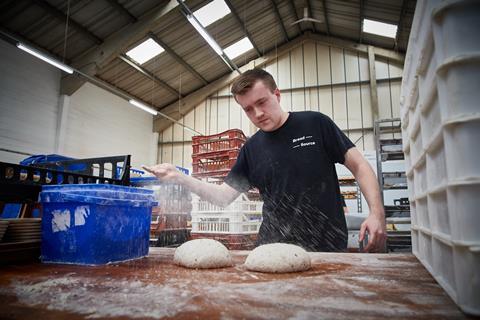
The general election provides the opportunity to get its messages in front of key decision makers both north and south of the border. To maximise clout, this will be done in collaboration with other trade bodies in the UK including the Craft Bakers Association and the Federation of Bakers as well as other representatives as part of Scotland Food & Drink. “At the end of the day, part of the strategy in Scotland is to grow the economy and we play a massive part in that,” she adds.
Change is the only constant
Striving for growth when you know what is coming down the tracks is simple enough but if the past few years have taught the world anything, it’s that “change will always be part of the future DNA”. This leads to the question: how can Scottish Bakers help businesses be fit for the future?
“By providing them with horizon scanning, insight and economic data that helps them be prepared for the next wave of challenges,” she states.
As well as the many economy-fuelled challenges listed above, bakeries of all sizes must face the constant evolution of consumers’ needs and desires. The dichotomy of health vs indulgence remains, but with the aforementioned HFSS regulations posing a threat, reformulation is likely to remain on the agenda.
At the minute, “reformulation is considered a bit of a swear word” because it is questioning the way things have always been done, the CEO notes. She is confident, though, that the industry can produce “more sustainable, less sugary products but still offering a place for indulgent ones as well”.
“The younger demographic needs to be at the heart of the decision-making process”
The journey ahead echoes the one undertaken during her time at Quality Meat Scotland in which Cameron sought to explore what younger consumers’ thought of red meat, whether they’re interested in having a conversation about it, and the language they use if they are.
Rather than just targeting your core demographic, it’s important to look to younger consumers as Cameron so succinctly puts it: “If you’re not moving the dial and talking to the next generation you’ve lost them by the time they become your primary audience.”

For those steadfast in their love of traditional products, she assures that there will always be a core range of products. “Bread will always be bread and rolls will always be rolls, but we need to adapt.”
“The younger demographic needs to be at the heart of the decision-making process as businesses ask ’How am I going to evolve my business? How can I develop my brand to make it relevant to an 18-year-old?’ We need to start future proofing. We need to start considering how they eat, how they talk, how they shop. Insight and the consumer should be placed at the heart of business growth, innovation, and reformulation.”
Embracing these opportunities could help the industry open itself up to a world of possibilities.
“There are so many challenges,” she concludes, “but the future is bright. We have an industry that’s open for change, that’s resilient, and that will move with the times as long as it’s provided with the insight and overview of what needs to change. We’re up for the challenge.”






















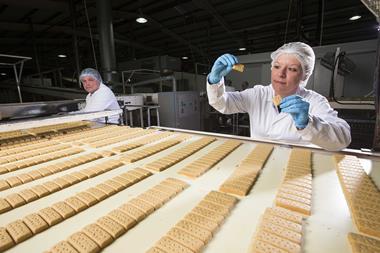
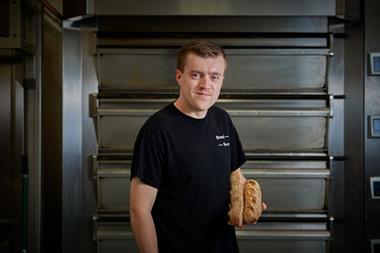

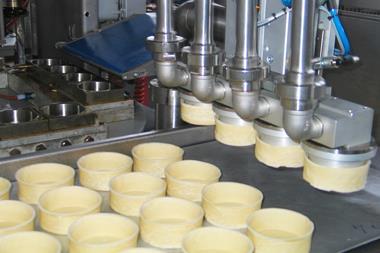


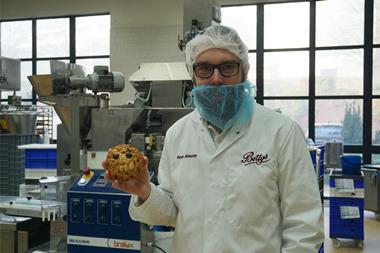


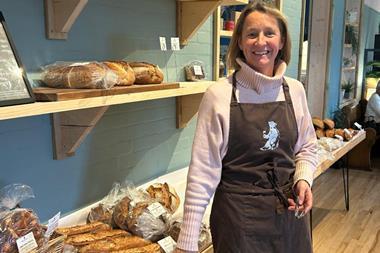

No comments yet